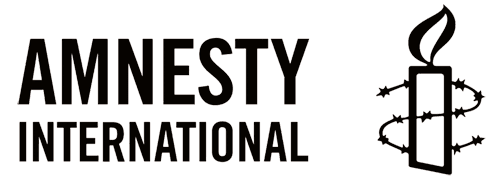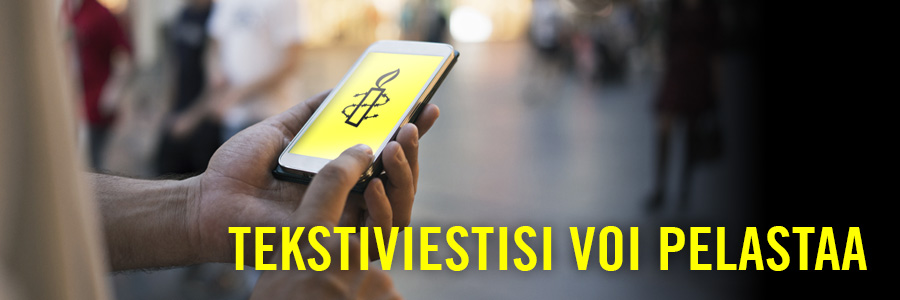Dear Brig. Gen. Yifat Tomer-Yerushalmi,
I am writing you today to express my grave concern over the enforced disappearance of Haitham Abdelwahed, (25) and Nidal al-Waheidi (31), two journalists from the occupied Gaza Strip whose whereabouts have remained unknown since 7 October 2023. The detention of the two journalists was widely documented on that day as they were reporting from Beit Hanoun/Erez crossing. On 22 October and 2 November, six human rights organizations based in Israel filed two urgent petitions before the Israeli Supreme Court requesting the disclosure of the whereabouts of hundreds of Palestinians from the occupied Gaza Strip detained in Israel, including the two journalists, the legal grounds for their detention and calling for the release of those unlawfully detained. Two-and-a-half months since the two went missing while on duty, their families, colleagues and friends, most of whom live in the besieged Gaza Strip amidst relentless Israeli bombardment and frequent communication blackouts, have received no information about them from the Israeli authorities, not even confirmation that they are still alive.
The families’ fears have been exacerbated by the Israeli army’s confirmation in November that two workers from the Gaza Strip had died while in the custody of the Israeli military. As recently as 18 December, the Israeli army told Israeli daily, Haaretz that a “number of” detainees from the Gaza Strip died in custody at the military detention facilities in the Beersheba Airfield, also known as Sdeh Teyman, where hundreds of Palestinians from Gaza are held in conditions that violate the prohibition of torture and other ill-treatment.
In light of the harrowing testimonies and accounts of torture and other ill-treatment shared by released detainees and the uncertainty and anguish that the families of Nidal al-Waheidi and Haitham Abdelwahed have been going through, we urge you to immediately disclose the whereabouts of Nidal al-Waheidi and Haitham Abdelwahed, detail the legal grounds for their detention, ensure their humane treatment, including access to medical services and protection from torture and other ill-treatment, and grant them access to the lawyers appointed by their families. Unless they are charged promptly with a recognizable criminal offence and granted a fair trial in accordance with international standards, they must be immediately released.
Taustatietoa
Haitham Abdelwahed (25) and Nidal al-Waheidi (31) are two journalists from the occupied Gaza Strip who work for the independent outlets Ein Media and an-Najah channel respectively. They were detained by Israeli forces on 7 October while they were reporting on the Hamas-led attack near/at the Beit Hanoun/Erez checkpoint. Two other journalists from Ain Media, the outlet where Haitham Abdelwahed works, have been killed in Israeli attacks since 7 October: Ibrahim Lafi and Roshdi Sarraj.
Israeli human rights organization HaMoked has filed several requests to Israeli authorities and two petitions to the Israeli Supreme Court to demand information on the whereabouts of Nidal and Haitham and on the legal grounds for their detention. Israeli authorities have so far failed to respond to any of their inquiries. The Supreme court’s response to one of these petitions was that “Israel held no obligation towards residents of the Gaza Strip, given that it was a territory controlled by a terrorist organization and did not establish what were the legal framework and duties incumbent on Israel in holding Gazans.” The cases of Haitham and Nidal are not isolated incidents. HaMoked are planning to submit yet another appeal to request information on the fate of Palestinians from Gaza held by Israeli authorities. From 7 October to 11 December, HaMoked alone received 816 inquiries on missing Palestinians from the Gaza Strip, including men, women, and children, with their ID numbers and addresses set as born in Gaza. The actual number of those missing is expected to be much higher, with many families unable to report on their missing loved ones due to communication blackouts and concerns over negative implications of publicity.
Horrifying accounts and cases of torture and degrading treatment of Palestinian detainees and prisoners whether in prisons or military detention centres have been shared by released prisoners and detainees as well as lawyers who visit them. Since 7 October, Israeli authorities have confirmed that six Palestinian detainees have died in Israeli custody, the autopsy of at least one of them showed clear signs of beatings and torture. Two of these detainees are from the occupied Gaza Strip, and their families were only able to learn about their deaths from other detainees from Gaza who were released. The bodies of all six detainees who died in Israeli custody since 7 October are still withheld by the Israeli authorities. The cases of torture, humiliation, and degrading treatment were shared widely online in the forms of gruesome scenes in images and videos where Israeli soldiers were beating and humiliating Palestinians while detaining them blindfolded stripped to their underwear, with their hands tied behind their backs, in a particularly chilling public display of torture and humiliation against Palestinians. On 7 December in Beit Lahia another disturbing display of inhumane and degrading treatment against Palestinian detainees was shared online in the form of photos and video where hundreds of Palestinian men, and in one photo also a woman was amongst those held captive, were stripped to their underwear, their hands tied behind their backs and blindfolded. A number of those detained were identified as journalists, school headmasters, and shop owners. They were detained in Gaza then taken to a military detention centre outside of Gaza where some were subjected to further torture and other ill-treatment, several of them were released after 12 to 14 hours while others remain in custody until today without further information on their whereabouts – adding more to the unknown fate of the thousands others who have been in this protection blackhole for over 70 days, and amid the reports of several dying in custody.
The legal basis for the ongoing detention of Nidal and Haitham, and hundreds, perhaps thousands, of Palestinians from Gaza remains vague, but since 7 October, Israeli authorities have also resumed the implementation of the “Unlawful Combatants” Law, a category which is not recognised by international law, to indefinitely hold without charge or trial at least 260 Palestinians from the occupied Gaza Strip, as of 1 December 2023. According to this law and the emergency regulations attached to it, a detainee is entitled to meet a lawyer within 28 days into their detention, but a court may approve the denial of the right to counsel for up to 80 days. The court may also approve the detention without the presence of a defense lawyer. But in the case of thousands of workers from the Gaza Strip who were detained after 7 October and released in early November, it emerged that they were being held unlawfully absent of any legal basis or authority at all.


